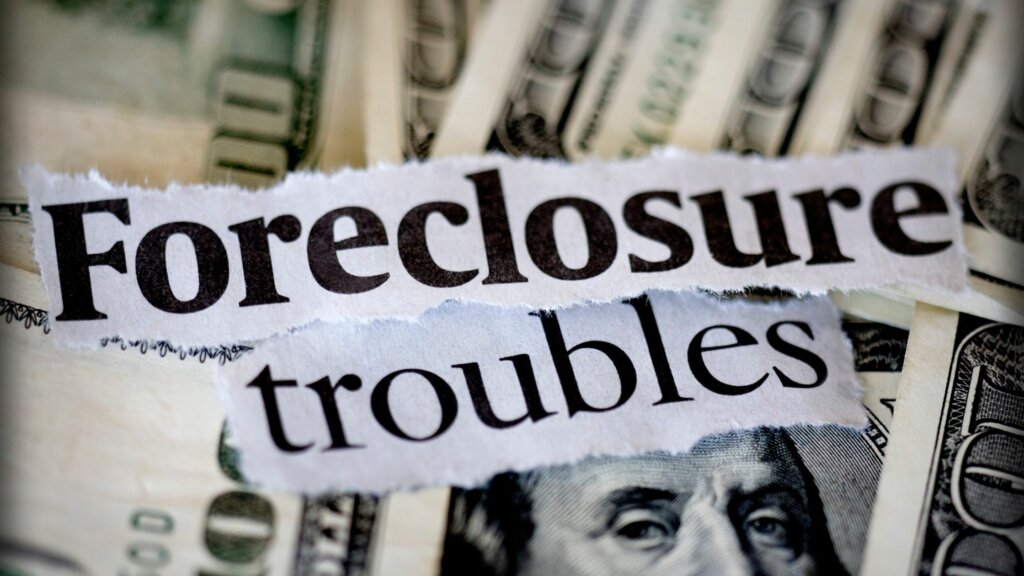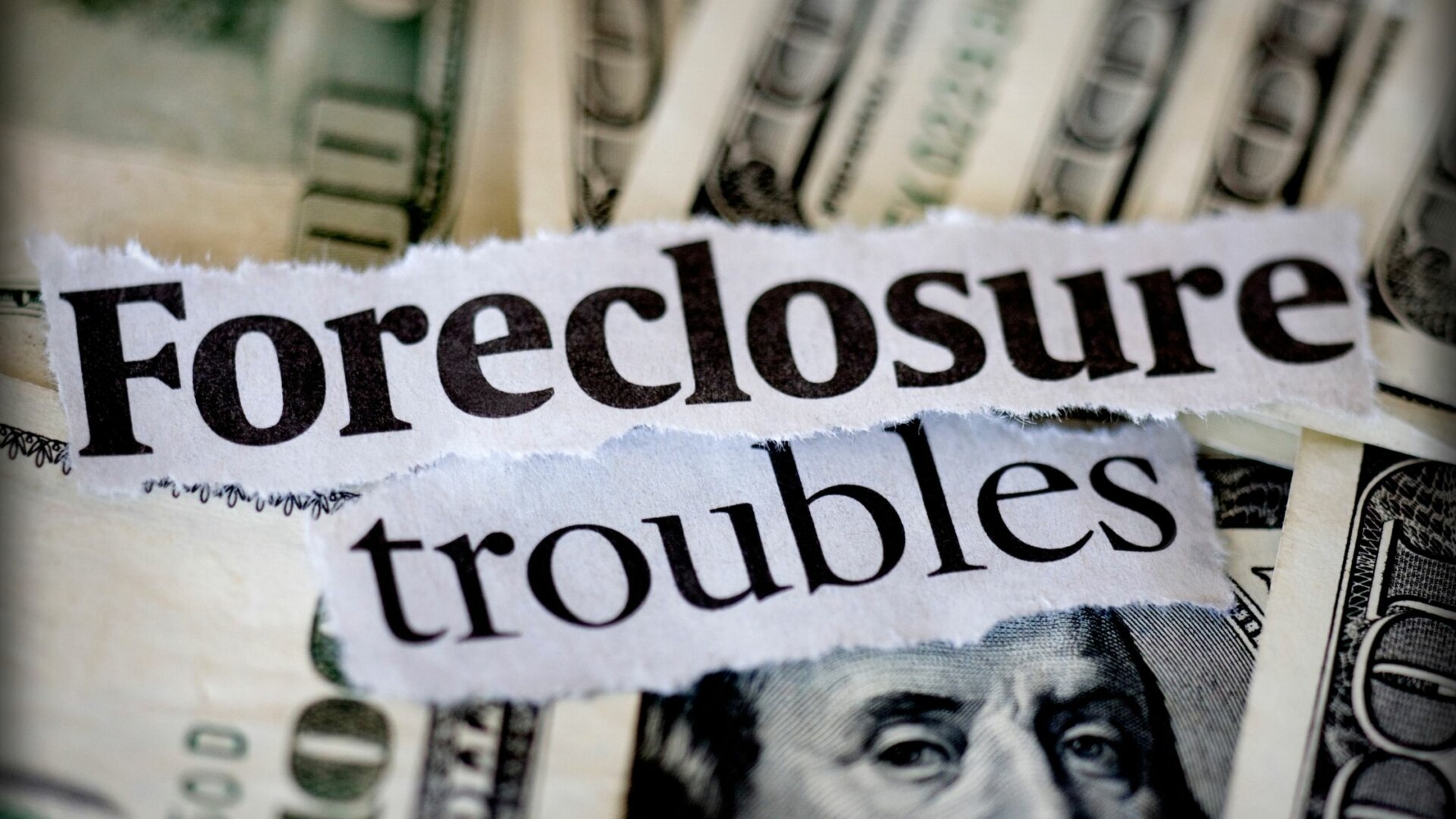When homeowners find themselves struggling to keep up with their mortgage, they may have to consider their options. One of those options is working with a mortgage company to process a deed in lieu of foreclosure. This process occurs when the homeowner deeds the property back to the lender in exchange for not going through with a formal foreclosure.
Let’s take a look at the pros and cons of this option!

Deed in Lieu of Foreclosure: How Does it Work?
A deed in lieu of foreclosure is a strategy to avoid foreclosure. It occurs when the homeowner transfers the property back to the lender in exchange for forgiveness of the mortgage debt.
The major benefit of a deed in lieu of foreclosure is that it has a lower impact on your credit score than a foreclosure. However, keep in mind that a deed in lieu of foreclosure does not always guarantee that you will not have to go through some sort of legal procedure. Even if you obtain an unconditional discharge from the bank, you will still have a blemish on your credit report that will restrict your access to borrowing for years.
Here’s what you need to know:
Talk to Your Mortgage Lender
There are a few things you should keep in mind before deciding whether or not to pursue a deed in lieu of foreclosure with your mortgage lender. For some people, it’s just not worth the hassle of fighting their way out an unwanted situation. It could cost you more money in fees and costs to do a deed-in-lieu when compared with other options available – so before deciding on this path think hard about whether or not it’s really what you want?
If you’re thinking about doing a deed in lieu of foreclosure, you should first speak with your mortgage lender to see if there are any other options available. You may be able to work out a repayment plan or find someone who’s willing to buy your home at a discounted price. Whatever you do, try to avoid going through with foreclosure if at all possible – it is a worst-case scenario.
Too Much Outstanding Mortgage Debt
It is possible to do a deed in lieu of foreclosure even if you have too much outstanding debt. However, it is important to note that doing a deed in lieu of foreclosure will still result in a black mark on your credit report and may still lead to legal action being taken against you. As a result, it is generally a good idea to negotiate different choices with your lender before taking this approach.
How does it work?
A deed in lieu of foreclosure is a legal document that transfers the ownership of a property to a lender in order to avoid foreclosure. The deed must be voluntarily signed over by the borrower, and the terms of the deed must be agreed upon by both parties. Once the deed is signed, the borrower is no longer responsible for the mortgage or any other debt associated with the property.
Deeds in lieu are often used as a last resort before foreclosure, as they can help borrowers avoid damage to their credit score and save them from having to go through the foreclosure process. However, it’s important to note that accepting a deed in lieu typically means that you will not be able to purchase another home for at least two years.
Alternatives to a deed in lieu of foreclosure
This technique works well for both the homeowner and the lender, but it isn’t suitable for everyone. If you’re thinking about a deed in lieu of foreclosure, keep these factors in mind.
Mortgage Loan Modifications
A loan modification is a process whereby the terms of a mortgage are modified outside of the original contract. The most common reason for modifying a mortgage is to reduce the monthly payment amount. A mortgage loan modification can help you avoid a foreclosure proceeding by changing the terms of your original mortgage agreement.
This could mean extending the length of your loan, reducing your interest rate, or even forgiving part of your principal balance. If you’re struggling to make your monthly mortgage payments, it’s important to reach out to your lender as soon as possible. They may be willing to work with you to modify your loan and help you stay in your home.
Mortgage Payments still Too High
If you are still struggling to afford your monthly mortgage payments after a loan modification, it is important to seek help immediately. Do not wait until you miss a payment or are facing foreclosure.

There are many resources available to homeowners in need of assistance. The U.S. Department of Housing and Urban Development (HUD) offers a variety of programs that can help you keep your home, including the Home Affordable Modification Program (HAMP) and the Home Affordable Refinance Program (HARP).
Please visit HUD’s website for more information about these and other programs that may be available to you. Remember, it is always better to seek help before you fall too far behind on your payments. Avoiding foreclosure is always preferable to going through the process.
Short Sale
A short sale is a real estate transaction in which the seller intends to sell their property for less than the amount they owe on their mortgage. The seller usually locates a buyer for their property and then contacts his or her mortgage lender to inquire whether the sale may proceed despite the fact that the selling price will be below what is owed on the mortgage.
A short sale can be helpful for people who are struggling to make payments on their home, as it can help avoid any foreclosure proceedings. It’s important to note, however, that a short sale will still have a negative impact on your credit score.
Selling Your Home to Avoid Foreclosure
If you believe you can sell your house and earn enough money to pay off your mortgage, it may be a good idea. If you don’t feel confident that the sale would generate enough money for you, consider whether a short sale might be an option. Alternatively, if selling would be too difficult for you, try to negotiate with your lender instead of going through the foreclosure process.
Foreclosure is a last resort and should only be considered if all other options have been exhausted. Talk to a real estate counselor or real estate professional to get more information and help make a decision.
Benefits of Deed in Lieu of Foreclosure
There are several advantages to deed in lieu of foreclosure.
- You can finally have relief from your complicated financial situation by getting rid of your home loan.
- The timeline to be able to qualify for your next mortgage is shorter than it is after a foreclosure.
- You’ll avoid the costs and damage to your credit that come with a typical foreclosure.
Drawbacks of Deed in Lieu of Foreclosure
There are a few potential drawbacks to pursuing a deed in lieu of foreclosure.
- You may not be able to negotiate favorable terms with your lender.
- It may still show up on your credit report as a foreclosure.
- You may have to pay taxes on any forgiven debt.
FAQs
Q: What is another term for deed in lieu of foreclosure?
A: Absolute Auction. Bank-Owned Property. Foreclosure Deed. Distress Sale. Notice of Default.
Q: Can I improve my credit scores after a deed in lieu of foreclosure?
A: Yes! One option is to dispute the information with the credit reporting agencies. Another method is to try to persuade the lender to remove your debt from your credit report.
Q: How do you negotiate a deed in lieu?
A: The best way to negotiate a deed in lieu is by coming up with solutions that meet the needs of both the borrower and the lender. If you are the ability to compromise and agree on what will work for everyone, then your chances of success become much higher!
How to know if a deed in lieu of foreclosure is the right option for you
There’s no one-size-fits-all answer to this question, as the right option for you will depend on your individual circumstances. However, if you’re facing foreclosure and considering a deed in lieu of foreclosure, it’s important to weigh the pros and cons before making a decision. On the positive side, a deed in lieu of foreclosure can help you solve an immediate financial issue and avoid the long-term damage to your credit that comes with foreclosure.
However, it’s important to be aware that there may be some drawbacks as well. For example, your lender may require you to sign over any equity you have in the property, and you may still be responsible for any outstanding mortgage balance. Ultimately, it’s important to speak with a housing counselor or real estate professional to get more information and help make a decision.

